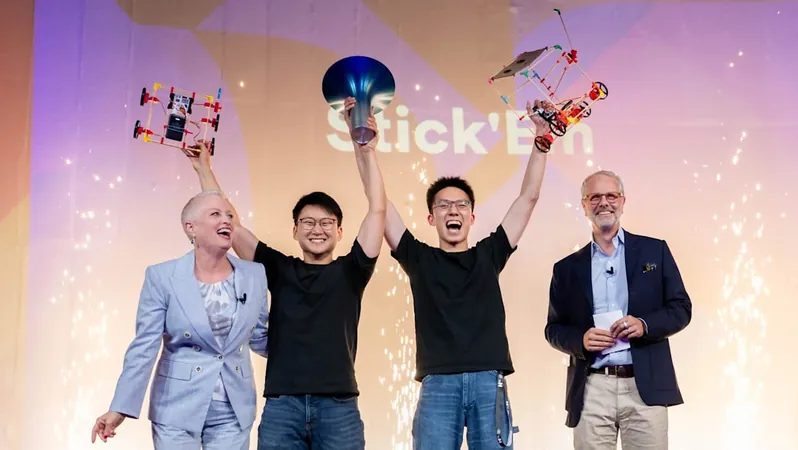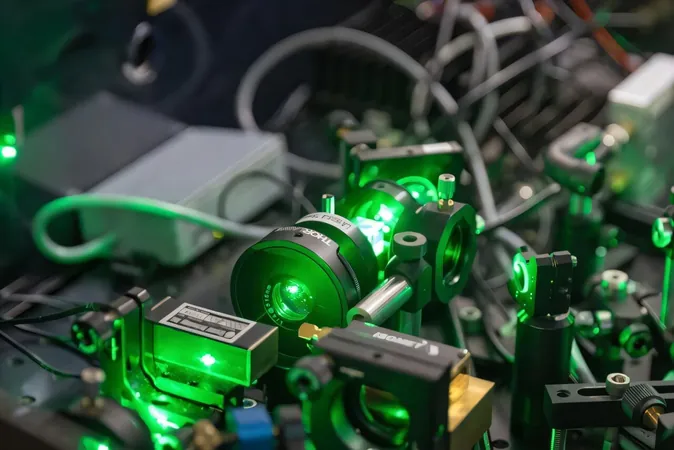
Revolutionizing Immunology: AI Unlocks Secrets of T-Cell Therapy and Vaccine Design
2025-09-09
Author: Li
Artificial Intelligence Transforms T-Cell Research
In a groundbreaking move for immunology, researchers are now wielding the power of artificial intelligence (AI) to crack one of the field's most intricate puzzles: predicting how T cells recognize and battle specific peptide antigens. Utilizing the innovative AlphaFold 3 (AF3) AI model, originally designed for protein structure prediction, the team has unveiled a fresh methodology that accurately models T cell receptor–peptide/major histocompatibility complex (TCR-pMHC) interactions.
The Essential Role of T Cells in Human Health
T cells are vital players in our immune system, functioning as defenders against tumors and infections. Yet, they can also turn against the body, exacerbating disease by attacking healthy tissues. At the core of this duality lies the TCR-pMHC recognition process, which determines whether T cells will fight infections or potentially trigger autoimmune responses. Despite their importance, prior predictive models of TCR specificity have struggled with accuracy.
A New Frontier in Predictive Modeling
Dr. Chongming Jiang, the Principal Investigator behind this study, shared, "Our focus on AI-based structural biology led us to explore whether AlphaFold could effectively predict T cell recognition of epitopes. Our results show that AlphaFold can differentiate between valid and invalid epitopes, taking us a significant step toward reliable and high-throughput T cell response predictions."
Paving the Way for Vaccine Targets
The research demonstrates that AlphaFold’s advanced computational modeling can pinpoint immunogenic epitopes—a crucial breakthrough for future vaccine development. This innovation could not only aid in preventing diseases but also enhance the design of T cells with higher affinities, elevating the safety and effectiveness of therapies aimed at cancer, infectious diseases, and autoimmune disorders.
Implications for Precision Medicine
Dr. Xiling Shen, Chief Scientific Officer at the Terasaki Institute, emphasized, "An improved predictive model of TCR-pMHC interactions has the potential to revolutionize immunotherapy and vaccine development. This marks an essential step toward precision medicine that leverages our immune system to fight disease effectively."
Looking Ahead: Future Validation Needed
Although the researchers believe additional refinement and validation are necessary before widespread clinical use, the findings underline the promising role of deep learning-driven structural modeling for predicting TCR-pMHC interactions. This breakthrough highlights how AI approaches can accelerate drug discovery and immunotherapy design, ushering in more effective and safer treatment options.



 Brasil (PT)
Brasil (PT)
 Canada (EN)
Canada (EN)
 Chile (ES)
Chile (ES)
 Česko (CS)
Česko (CS)
 대한민국 (KO)
대한민국 (KO)
 España (ES)
España (ES)
 France (FR)
France (FR)
 Hong Kong (EN)
Hong Kong (EN)
 Italia (IT)
Italia (IT)
 日本 (JA)
日本 (JA)
 Magyarország (HU)
Magyarország (HU)
 Norge (NO)
Norge (NO)
 Polska (PL)
Polska (PL)
 Schweiz (DE)
Schweiz (DE)
 Singapore (EN)
Singapore (EN)
 Sverige (SV)
Sverige (SV)
 Suomi (FI)
Suomi (FI)
 Türkiye (TR)
Türkiye (TR)
 الإمارات العربية المتحدة (AR)
الإمارات العربية المتحدة (AR)